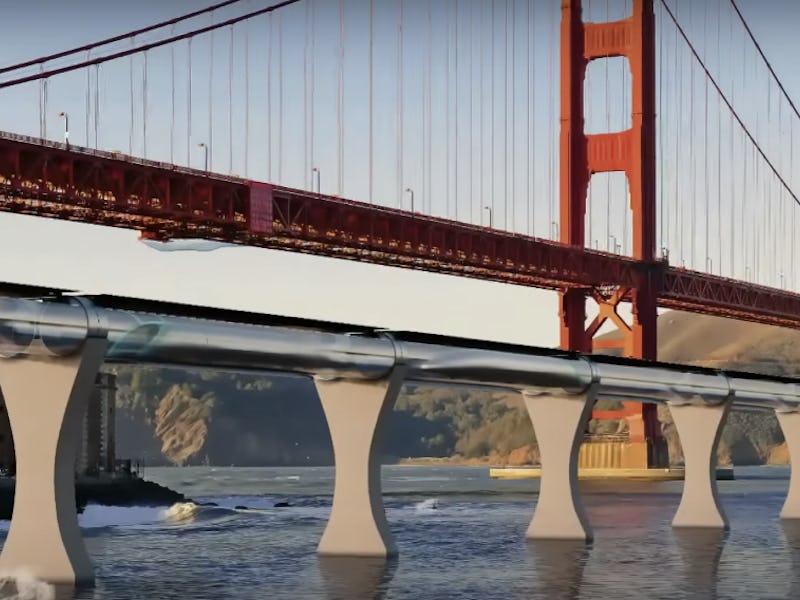Hyperloop COO Says the "Main Cost Is the Tube"
And it'll be profitable fast, if you believe the COO of Hyperloop Transportation Technologies.

Shooting through tubes at a quoted 760 mph in 28-person pods won’t just be quick and efficient, it will be profitable for whoever owns the track. Bibop Gresta, an executive with Hyperloop Transportation Technologies, told CNBC on Monday that the company will make more than enough money to justify the initial construction costs.
“Our cost of construction is 5 to 10 times less than a normal cost,” said Gresta the chief operating officer of of HTT (not to be confused with the similarly named Hyperloop Technologies).
“The main cost is the tube, and we’re working already to bring it down at a level that it will be very efficient,” Gresta said.
Gresta, speaking at the Emerge Americas conference in Miami with his characteristic slicked-straight-up hair, confirmed that there are many ways to profitability. In addition to the per-passenger income, an HTT hyperloop will produce more energy than it consumes through renewable sources, like solar, wind, electronic braking, and kinetic energy. That excess energy could then turn into a profit stream.
He didn’t mention exact details or numbers.
The company is still developing a working prototype, but the design features 28-person capsules running every six minutes. HTT has already struck a fuzzy deal with Slovakia, and CEO Dirk Ahlborn told the crowd at SXSW that the pods will have virtual windows.
An artist's rendering of a hyperloop tube.
“We are actually building something that is the first full-scale prototype of the Hyperloop,” Gresta said. “That can be the first piece of [the] route to connect Los Angeles and San Francisco.”
Judging by his confidence of how the system will work, HTT will quickly make more than enough money to justify the cost. Still, without hard numbers on how much energy the hyperloop will actually be producing, it’s impossible to know if Gresta’s confidence comes from hard data or belief in his system.
In reality, people won’t know the exact profitability of a hyperloop until one is built. Rival Hyperloop Technologies is putting on a demonstrations in Las Vegas in May and hopes to have an operational hyperloop running by 2020. That, or any full-scale HTT project, won’t happen unless it is profitable.
Gresta says that HTT’s business model is to increase the value of the land. Presumably, part of that value will come from the renewable energy infrastructure installed alongside the hyperloop. If HTT needs to rely more on the actual passengers for income, they can build bigger pods or send capsules in faster intervals. But ideally, Gresta says, it will be profitable way before the company needs to do that.